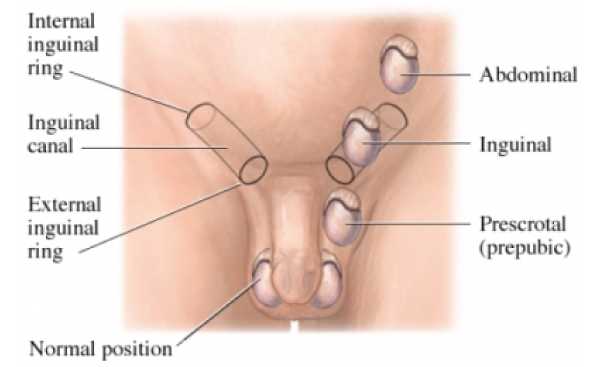CAUSES, EFFECTS AND TREATMENT OF UNDESCENDED TESTICLES
A newborn goes through a checklist of several tests immediately after birth, including checking how their genitals have developed. For boys, the scrotum (the bag of skin hanging below the penis)


A newborn goes through a checklist of several tests immediately after birth, including checking how their genitals have developed. For boys, the scrotum (the bag of skin hanging below the penis) is especially of particular importance. This is because of a condition known as cryptorchidism or undescended testicles.
Causes and symptoms
The testicles are formed in a child’s abdomen and ideally drop into the scrotum just a month or two before birth. When a child suffers from undescended testicles, the testicles do not move from the abdomen and the scrotum appears empty, smaller than usual or uneven. While there is no exact cause for undescended testicles, experts believe several factors may contribute to a child getting the condition. They include:
Genetics
Mother’s health during pregnancy for instance, obesity or diabete
Environmental factors such as exposure to cigarette smoke or some types of pesticides
Low birth weight
Premature babies
Excess fibrous tissue or muscles that do not stretch in the groin
Some conditions such as Down syndrome.
Effects of undescended testicles
Fertility challenges: Testicles are responsable for manufacturing male hormones and sperms. An undescended testicle can lead to low sperm count or poor sperm quality.
Testicular cancer: It usually begins in the cells of an undeveloped testicle or one that produces immature sperm. Hence men who have suffered undescended testicles stand a higher risk of developing the cancer.
Testicular torsion: This refers to the twisting of the spermatic cord, which contains blood vessels, nerves and the tube carrying semen into the penis thereby cutting blood into the testicles. Testicular torsion occurs 10 times more in undescended testicles and if not treated, leads to the loss of the testicle.
Trauma: The testicles need to be placed at a lower temperature for them to function optimally hence the reason for the scrotum under the penis. Moreover, men are more muscular around the hip area compared to women and if the testicle is left inside the groin, then the muscles are likely to damage them due to pressure and rubbing against the pubic bone.
Treatment
According to medics, undescended testicles are nothing to worry about and the condition may remedy itself between zero to six months of a baby’s life. Typically, a doctor should be able to tell if a child is suffering from undescended testicles by feeling the scrotum. He may try to coax the testicles into place by feeling the general groin area. If they are in the inguinal canal (the passage way between the groin and scrotum), and only moves part way or causes pain or discomfort, then it is an undescended testicle. It is important to confirm the condition with the help of an x-ray or ultrasound, as there are conditions that mimic undescended testicles. They include:
Retractile testicles: In this case the testicle moves back and forth between the groin and the scrotum and subsides as the child grows.
Ascending testicle: Here, the testicle returns to the groin and cannot be easily guided back to the scrotum.
If by the fourth month the testicles have not moved and cannot be located, then it is time to consider other options, which include:
Surgery: Treating undescended testicle when your son is still a baby lowers the risk of complications later in life, for instance, infertility and testicular cancer. It is typically done between the ages of six to 12 months.
Hormone treatment: Other times, doctors may try to coax the testicle to descend into the scrotum through the use of hormones. However, it is not commonly recommended, as it is less effective than surgery and may prompt early puberty in boys.
In the event the testicles are removed altogether for one reason or another, it is important to teach your child coping mechanisms by talking about and explaining the condition. Other alternatives may include getting prosthetic testicles implanted during adolescence to ward off instances of teasing and to enhance the feeling of normalcy. An endocrinologist will also prescribe hormones that will help your child transition into puberty and maturity seamlessly.
Published in January 2015





